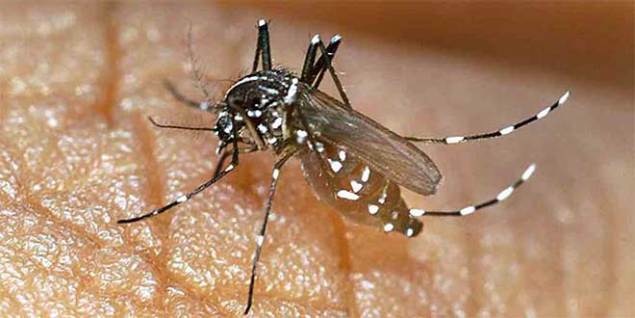
Many pathogens are transmitted by insect bites. Of the many diseases spread by insects, very few are actually caused by the insects themselves but rather, by other organisms passed on when they feed or bite. The abundance of vectors (as the transmitting insects are called) depends on seasonal and other environmental fluctuations. Now, in a new article published this week in the journal PLOS Pathogens, scientists demonstrate that malaria-causing Plasmodium parasites react to mosquitoes biting their hosts, and that the parasite responses increase transmission to the mosquito vector.
Dr. Sylvain Gandon and colleagues from the University of Montpellier in France first studied the theoretical evolution of parasite evolution in a variable environment. Using a mathematical model, they found that when insect vectors are present only some of the time, “plastic” transmission strategies — those that depend on the ability to sense and respond to vector availability — can outcompete constant strategies, even when evolution of the former is associated with some costs to parasite fitness.
The researchers then went on to test whether such plastic transmission strategies actually exist for malaria parasites. Like many other parasites, Plasmodium goes through a phase of chronic infection during which most of the parasites are in a dormant (or latent) stage, and parasite numbers in the blood are very low. Every now and then, however, the parasites “relapse.” Relapses are characterized by increased parasite counts in the blood, but what causes them is not well-understood.
The researchers therefore asked (1) whether mosquito bites of the hosts can trigger relapses in Plasmodium during chronic infections, and (2) whether relapses are associated with higher rates of transmission to the vector, i.e. infection of the mosquitoes.
Specifically, the researchers studied the interaction between Plasmodium relictum, the parasite responsible for most cases of bird malaria in European songbirds, and its natural vector, a mosquito called Culex pipiens. They infected domestic canaries with P. relictum and tested whether bites from uninfected Culex mosquitoes could trigger malaria relapses during chronic infection.
They found that, indeed, parasite numbers in the blood routinely increased after the canaries were bitten. Moreover, the higher parasite loads following mosquito bites translated into higher infection rates of the mosquitoes.
“In line with our theoretical predictions, we show that P. relictum has the ability to boost its own transmission during the chronic phase of the vertebrate infection after being exposed to mosquito bites,” the team writes. And while the contribution of plastic transmission in human malaria remains to be determined, the researchers suggest that better understanding of such strategies may eventually improve malaria control.
In addition, the new findings may have important implications for other infectious diseases, the researchers add:
The study of plastic transmission strategies may also be relevant to many other pathogens that are known to alternate between acute and dormant phases such as Herpes Simplex virus, Mycobacterium tuberculosis, and HIV. Such dormant parasites pose considerable therapeutic challenges and much would be gained from understanding the cues underlying the switch between dormant and acute stages in these pathogens…
[A] better understanding of the ecological determinants as well as the evolutionary forces governing parasite relapses is not only of academic interest: it is also urgently needed to improve the efficacy of public health strategies.
